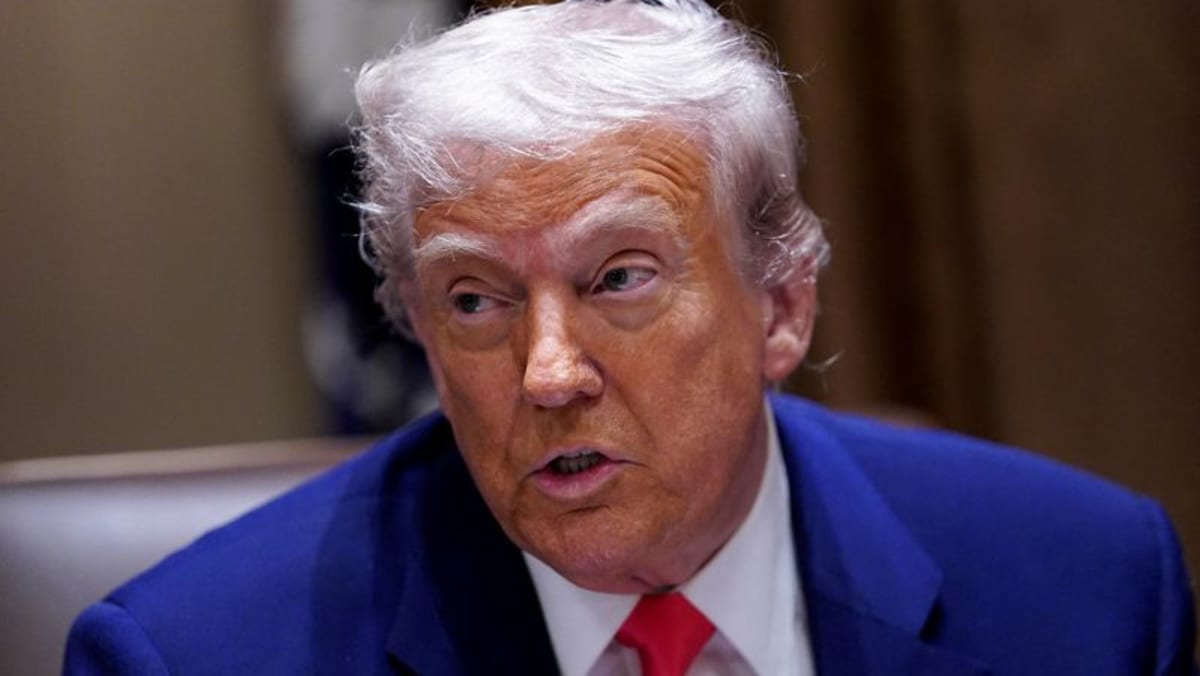‘I take full responsibility’: Defense Secretary Austin testifies before House panel over secret hospitalization

House Republicans on Thursday are demanding to know whose decision it was to keep Defense Secretary Lloyd Austin’s hospital stays a secret from the White House and Congress.
In a hearing before the GOP-led House Armed Service Committee, Austin — who is testifying for the first time since undergoing surgery for prostate cancer and being treated for underlying complications — said he mishandled his hospitalization and a communication lapse that left top Pentagon officials and the White House unaware of his condition for days.
White House officials said they were unaware of Austin’s situation until he had been hospitalized for several days in the intensive care unit.
Defense Secretary Lloyd Austin testifies during a hearing before the House Armed Services Committee at the Rayburn House Office Building on Feb. 29, 2024, in Washington.
Brendan Smialowski/AFP via Getty Images
In his opening remarks, Austin said there was a “breakdown in notifications” while he was hospitalized and that he takes “full responsibility” for the lapse. He said he never instructed any members of his staff to keep his hospitalization secret.
“Again: we did not handle this right. And I did not handle this right. And as you know, I have apologized … including directly to the president. And I take full responsibility.”
Austin reiterated that there were never any lapses in authorities or in command and control — that either he or the deputy secretary were “in a position to conduct the duties of my office.”
“I should have promptly informed the president, my team, Congress and the American people about my cancer diagnosis and subsequent treatment,” he said.

Defense Secretary Lloyd Austin testifies during a hearing before the House Armed Services Committee at the Rayburn House Office Building on Feb. 29, 2024, in Washington.
Alex Wong/Getty Images
Also, Austin told the House panel that he is “completely cured” of his prostate cancer because it was caught early.
The hearing had a contentious start when Rep. Jim Banks — one of Austin’s top critics — asked if the president is out to lunch or if the defense secretary is just irrelevant.
“Are you surprised president didn’t call for your resignation?” Banks asked.
Austin looked at the congressman and responded flatly: “The president has expressed full faith confidence in me.”
Banks then went on to question how the president could go three days without talking to his defense chief and not think much of it.
“Either the president is that aloof or you are irrelevant. Which one is it, Mr. Secretary, that you read that the president go three days without knowing that his secretary of defense is not on the job?”
“It’s neither. The president is not aloof. And I … participate in” all discussions, Austin responded before being cut off again.
Austin answered that “it can happen” and that there are times they go “days without direct communication” — especially if the president is traveling.
Banks said this situation signaled weakness to our adversaries.
“Our adversaries should fear us. And what you’ve done is embarrassed us,” Banks said.

Defense Secretary Lloyd Austin testifies during a hearing before the House Armed Services Committee at the Rayburn House Office Building on Feb. 29, 2024, in Washington.
Brendan Smialowski/AFP via Getty Images
Rep. Mike Rogers, the Republican chairman of Alabama, called the lapse in communication “totally unacceptable” on Thursday.
“It’s totally unacceptable that it took over 3 days to inform the President that the Secretary of Defense was in the hospital and not in control of the Pentagon,” said Rep. Mike Rogers, the Republican chairman of Alabama, in remarks prepared for Thursday.
“Wars were raging in Ukraine and Israel, our ships were under fire in the Red Sea, and our bases were bracing for attack in Iraq and Syria. But the Commander in Chief did not know that his Secretary of Defense was out of action,” according to Rogers’ prepared remarks.
An internal review by the Pentagon concluded there was no indication of “ill intent or an attempt to obfuscate” by Austin’s aides. Instead, the report found, staff was worried about concerns about medical privacy and unsure of protocol in a rapidly changing situation.
Austin has said he never directed his staff to keep his hospitalization quiet.
But the Pentagon review didn’t answer key questions about about when individual aides became aware of Austin’s condition, why each individual chose not to alert the chain of command and whether the defense secretary himself was advised to alert the White House but chose not to. It’s also unclear if Austin’s aides instructed others within the department not to share the information.
In his testimony on Thursday, Austin was expected to say the mishap was his responsibility.
Earlier this month, Austin described the cancer diagnosis as a “gut punch” and said his first instinct was to keep it private. That was a mistake, he said.
“We did not handle this right. I did not handle this right,” Austin said.
Source: abc news















